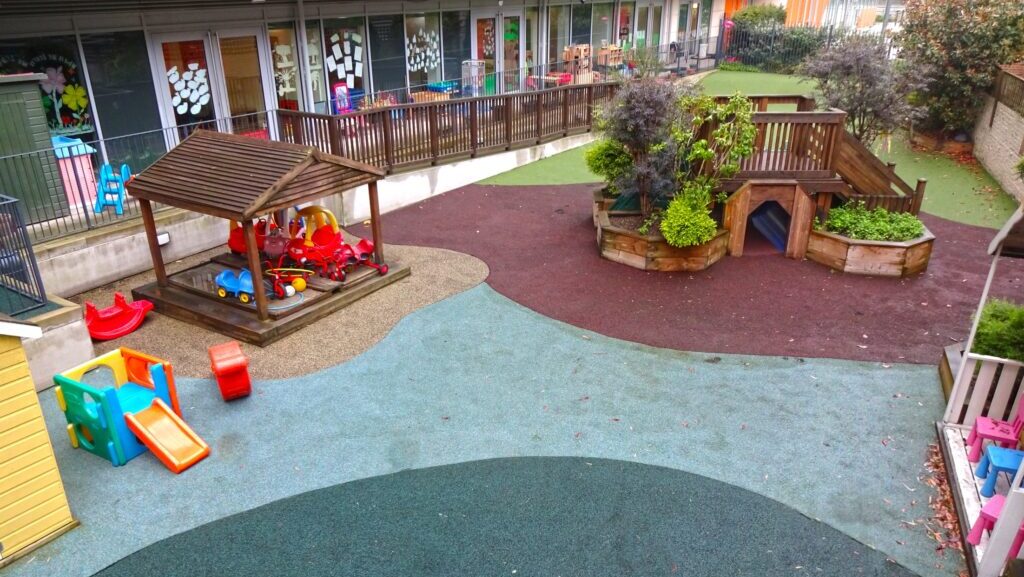Kids Planet Day Nurseries has acquired Torwood House Day Nursery in Bristol which can cater for up to 166 children.
Survey: Childcare costs driving one in four UK parents out of work and education
One in four UK parents have had to quit a job or drop out of education to avoid the rocketing cost of childcare, Theirworld survey has found.
The Theirworld survey, conducted by Hall + Partners polled more than 7,000 parents and carers with children under school age across the UK, US, the Netherlands, India, Brazil, Turkey and Nigeria.
The findings revealed a global early years crisis in which children across the world are being deprived of education and care in their most formative years due to the spiralling cost of nursery and pre-school fees.
The situation is particularly bleak in the UK where just under a quarter – 23% – of parents say they have either quit a job or dropped out of their studies to avoid childcare costs – a higher proportion than in Brazil (17%), Turkey (16%) and Nigeria (13%).
UK parents also face a tougher struggle to afford nursery and childminder fees than their counterparts in the Netherlands, US, India, Brazil, Turkey and Nigeria, the poll shows.
A staggering 74% of UK parents say they find it difficult to meet childcare costs, compared to 52% in India, 57% in the Netherlands, 59% in Nigeria, 68% in the US and Brazil and 72% in Turkey.
Almost two-thirds – 65% – of UK parents have had to make major financial changes to their lives to pay for childcare, the findings have found. This includes taking on more work and spending less on their children’s food.
Just over a fifth – 22% – of UK parents spend between 30% and 70% of their income on childcare.
Theirworld
Sarah Brown, chair of Theirworld, said the findings of the Act For Early Years report “laid bare the scale of the global early years crisis and its impact on children in rich and poor countries alike”.
The charity’s Act For Early Years campaign is calling on governments to urgently prioritise spending on the early years – not least because of the profound effect early years care can have on children and their families. Scientific research shows that 90% of a child’s brain is developed by the age of five.
Experts say the early years is also when deep societal inequality sets in.
Children from more prosperous, educated backgrounds tend to begin primary school ready to learn, but more than 40% of children in low- and middle-income countries – almost 250 million children – are at risk of not attaining their full development potential due to poverty, inadequate nutrition, exposure to stress and a lack of early stimulation and learning.
“For a child, the first five to six years are a once-in-a-lifetime opportunity, but this is being squandered on a global scale,” Sarah Brown said.
“Providing for children in their early years must be treated as a public good, not a private test of a family’s financial strength. Parents around the world should no longer be reduced to hoping for the best, crossing their fingers that the inadequate care they are often forced to use isn’t a risk to their child’s safety or their future prospects in life.
“We need to see a revolution for the early years that brings together governments, businesses, international agencies, parents, frontline workers, civil society, youth campaigners and grassroots groups to improve the lives of the world’s youngest children.
“The early momentum is there,” she said. “Around the world, community groups are already organising for change. We know that early years childcare is as essential to a country’s infrastructure as roads, hospitals and telecommunications.”
Justin van Fleet, president of Theirworld, called for every child to be given a “comprehensive package of care and education” for their first five years of life and that this should include “adequate nutrition, the opportunity to be stimulated through play and protection for their health”.
“Eight years ago, world leaders set a target that by 2030 every girl and boy should have access to quality early childhood development, care and pre-primary education,” he said.
“But this target is off track and there is no recognised plan in place to achieve it. Chronic underfunding means that more than half of all children around the world don’t have access to the childcare they need, and around half of pre-primary aged children are not enrolled in any form of early education.
“Radical change is needed in how we provide for children and their families. It needs to become a global priority, with not just proper investment but bright ideas and bold policy making across the board. Only then will we give all children the start in life they deserve.”
Currently only 0.5% of UK GDP is spent on early childcare and education, according to the latest OECD data.
In some countries, such as the US, Portugal, Ireland, Costa Rica, Cyprus and Turkey, it is as low as 0.3%. Spending is highest in Iceland (1.7%), followed by Sweden (1.6%), Norway (1.4%), France (1.3%), Denmark (1.2%) and Finland (1.1%).
However, just last month, the Chancellor, Jeremy Hunt, made childcare a central part of his budget, providing an extra £4bn over three years. He announced that every child under five would receive 30 hours of free childcare. However, critics pointed out that it will not be until September 2025 that all eligible under-5s will get those free hours.
Case Study
Elvira Grob, 41, and her partner, Michael, spend £975 a month on three days of childcare for their 10-month-old daughter, Yoomi. A lecturer in design on a zero hours contract, Elvira, who is also retraining and studying for a degree, returned to work two days a week when Yoomi was six months, but has been forced to take on extra freelance work to make ends meet.
“I’m close to burnout,” she said. “I work in the evenings, I work when Yoomi sleeps, and I work at weekends. My income covers Yoomi’s childcare but I have rent to pay, and I also have to pay for my studies. It’s got to a point where I’m considering dropping my degree to help us pay our bills.”
Elvira says that despite the high cost of childcare, she and Michael would not want to give up their daughter’s place at nursery to save money,
“She loves it there,” she added. “It’s so good for her development. I feel like she’s learned so much in such a short space of time. She’s learning to socialise with other children and gets so much entertainment. We wouldn’t be able to give her that all the time at home with all the work we have to do. The staff are skilled and clearly love their work, while Yoomi gets lots of nutritious meals and snacks.”
Latest News
Investment in early years is vital to combat rising absence rates in the first years of school, according to a…
Kido Schools has acquired Riverside Nursery, Battersea, in a sale faciliated by specialist business property adviser Christie & Co.




